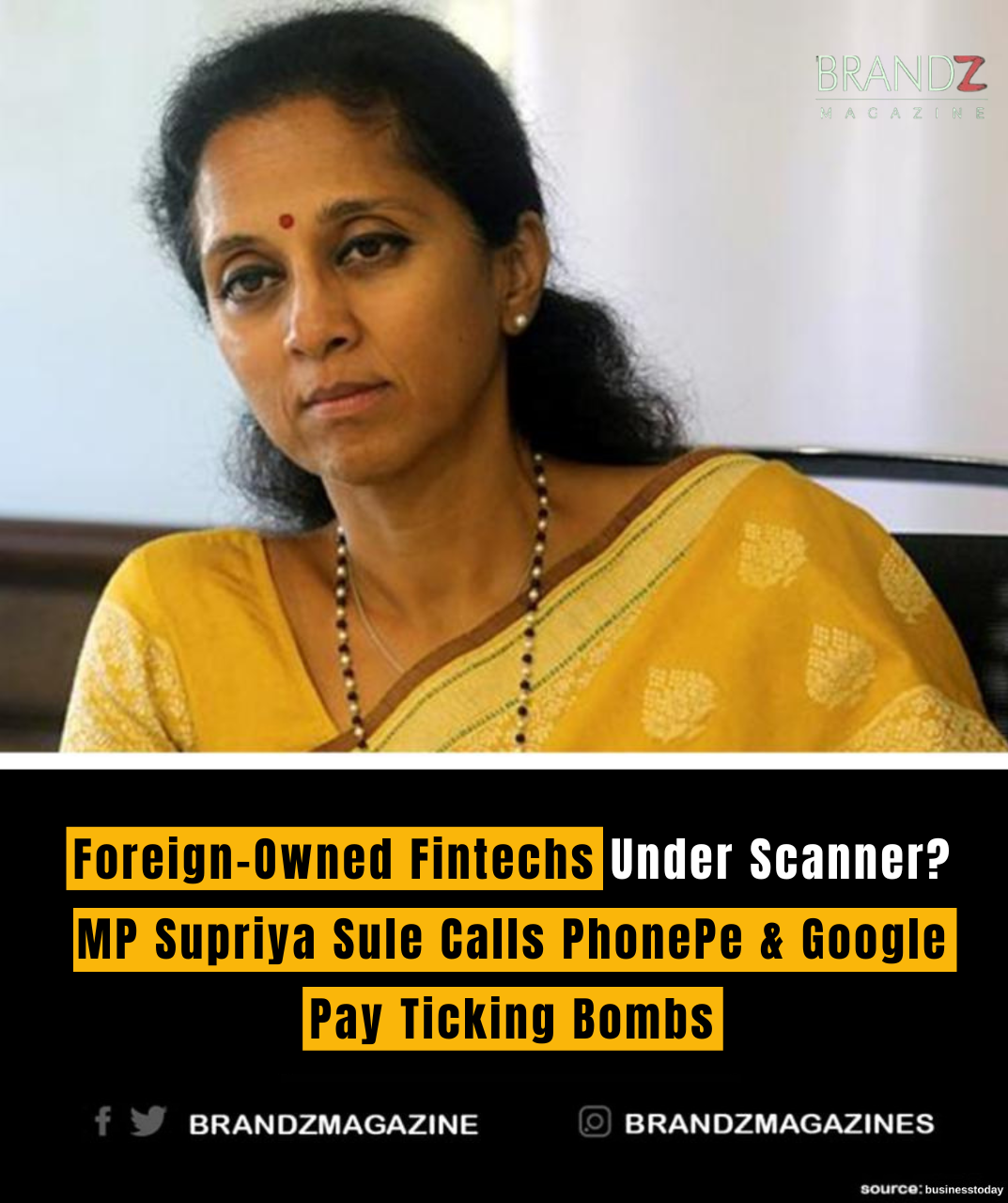
In recent developments within the Indian fintech landscape, Member of Parliament (MP) Supriya Sule has raised concerns about the operations of foreign-owned fintech companies, specifically targeting PhonePe and Google Pay. Sule has labeled these entities as “ticking bombs,” igniting discussions about regulatory scrutiny and the role of foreign players in India’s digital finance sector.
Sule’s apprehensions stem from various factors, including data privacy, market dominance, and potential risks to the country’s financial ecosystem. With the proliferation of digital payment platforms in India, concerns regarding the security and sovereignty of user data have gained prominence. Foreign-owned fintech giants like PhonePe and Google Pay, despite their widespread usage and convenience, have faced scrutiny over data localization and compliance with Indian regulations.
Furthermore, the issue of market concentration and dominance cannot be overlooked. PhonePe and Google Pay have amassed significant market shares in India’s digital payments landscape, raising questions about fair competition and the level playing field for domestic players. Sule’s remarks underscore the need for regulatory oversight to prevent monopolistic practices and safeguard the interests of all stakeholders, including consumers and local businesses.
Amid growing concerns about the influence of foreign-owned fintech companies, there is a pressing need for robust regulatory frameworks to govern their operations. The rapid evolution of digital finance poses unique challenges that demand proactive measures to ensure transparency, accountability, and consumer protection. Regulatory authorities must strike a delicate balance between fostering innovation and safeguarding financial stability and integrity.
It is imperative for foreign-owned fintech companies to demonstrate compliance with local laws and regulations, including data localization requirements and adherence to Know Your Customer (KYC) norms. Collaborative efforts between regulators, industry stakeholders, and policymakers are essential to address regulatory gaps and mitigate potential risks associated with the digital finance sector.
Moreover, Sule’s concerns highlight broader issues related to technological sovereignty and national security. In an era marked by heightened cybersecurity threats and geopolitical tensions, safeguarding sensitive data and critical infrastructure is paramount. Foreign-owned fintech companies must be subjected to rigorous scrutiny to ensure that they do not compromise India’s strategic interests or undermine its sovereignty.
However, it is essential to approach these concerns with nuance and pragmatism, recognizing the contributions of foreign-owned fintech companies to India’s digital economy. These entities have played a significant role in driving financial inclusion, promoting cashless transactions, and fostering innovation in payment technologies. Any regulatory interventions should be aimed at striking a balance between fostering a conducive environment for fintech innovation and mitigating potential risks to the financial system.
In conclusion, MP Supriya Sule’s remarks regarding foreign-owned fintech companies like PhonePe and Google Pay underscore the need for heightened regulatory scrutiny and oversight in India’s digital finance sector. While acknowledging the benefits of fintech innovation, policymakers must remain vigilant about the risks posed by market concentration, data privacy concerns, and potential threats to national security. Collaborative efforts between regulators, industry stakeholders, and policymakers are essential to address these challenges and ensure a resilient and inclusive digital financial ecosystem for India’s future.

